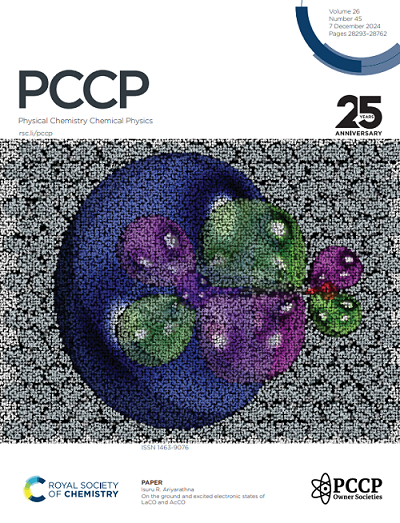物理性质可调的低熔点混合溶剂对全固态锂离子电池固体电解质的绿色回收
IF 2.9
3区 化学
Q3 CHEMISTRY, PHYSICAL
引用次数: 0
摘要
全固态锂离子电池(asslib)由于具有更高的安全性和高能量密度,有望成为下一代高性能锂电池。然而,asslib的广泛应用将导致废电池的大量增加,造成环境污染和资源枯竭。因此,开发asslib的环保回收方法迫在眉睫。低熔点混合溶剂(LoMMSs)由于教授在清华大学的研究小组于2023年提出,以促进绿色溶剂和绿色化学的发展。本研究利用LoMMSs从ASSILBs的固态电解质(sse)中浸出金属,并采用55反溶剂法从渗滤液中回收金属离子。结果表明,在80℃的温和温度下,24 h内锂的浸出效率可达92.5%,其高浸出效率归因于配位相互作用。此外,大规模应用的锂浸出效率与最佳效率的偏差最小。本研究为开发高效、绿色、温和的asslib中sss回收方法提供了有价值的见解。本文章由计算机程序翻译,如有差异,请以英文原文为准。
Green recovery of solid electrolytes from all-solid-state lithium-ion batteries by low-melting mixture solvents with tunable physical properties
All-solid-state lithium-ion batteries (ASSLIBs) are anticipated to be the next generation of high-performance lithium batteries due to their enhanced safety and high energy density. However, the widespread application of ASSLIBs will lead to a significant increase in spent batteries, resulting in environmental pollution and resource depletion. Therefore, the development of environmentally friendly recycling methods for ASSLIBs is both urgent and critical. Low-melting mixture solvents (LoMMSs) are proposed by Professor Yu's research group at Tsinghua University in 2023 to facilitate the advancement of green solvents and green chemistry. Here, we utilized LoMMSs to leach metals from solid-state electrolytes (SSEs) of ASSILBs and apply the 55 anti-solvents method to recover metal ions from leachate. Results show that the leaching efficiency of Li is up to 92.5 % at the mild temperature of 80 oC within 24 h. The high Li leaching efficiency is ascribed to the coordination interaction. Furthermore, the Li leaching efficiency in large-scale applications shows minimal deviation from the optimal efficiency. This research provides valuable insights into the development of efficient, green, and mild recycling methods for SSEs in ASSLIBs.
求助全文
通过发布文献求助,成功后即可免费获取论文全文。
去求助
来源期刊

Physical Chemistry Chemical Physics
化学-物理:原子、分子和化学物理
CiteScore
5.50
自引率
9.10%
发文量
2675
审稿时长
2.0 months
期刊介绍:
Physical Chemistry Chemical Physics (PCCP) is an international journal co-owned by 19 physical chemistry and physics societies from around the world. This journal publishes original, cutting-edge research in physical chemistry, chemical physics and biophysical chemistry. To be suitable for publication in PCCP, articles must include significant innovation and/or insight into physical chemistry; this is the most important criterion that reviewers and Editors will judge against when evaluating submissions.
The journal has a broad scope and welcomes contributions spanning experiment, theory, computation and data science. Topical coverage includes spectroscopy, dynamics, kinetics, statistical mechanics, thermodynamics, electrochemistry, catalysis, surface science, quantum mechanics, quantum computing and machine learning. Interdisciplinary research areas such as polymers and soft matter, materials, nanoscience, energy, surfaces/interfaces, and biophysical chemistry are welcomed if they demonstrate significant innovation and/or insight into physical chemistry. Joined experimental/theoretical studies are particularly appreciated when complementary and based on up-to-date approaches.
 求助内容:
求助内容: 应助结果提醒方式:
应助结果提醒方式:


